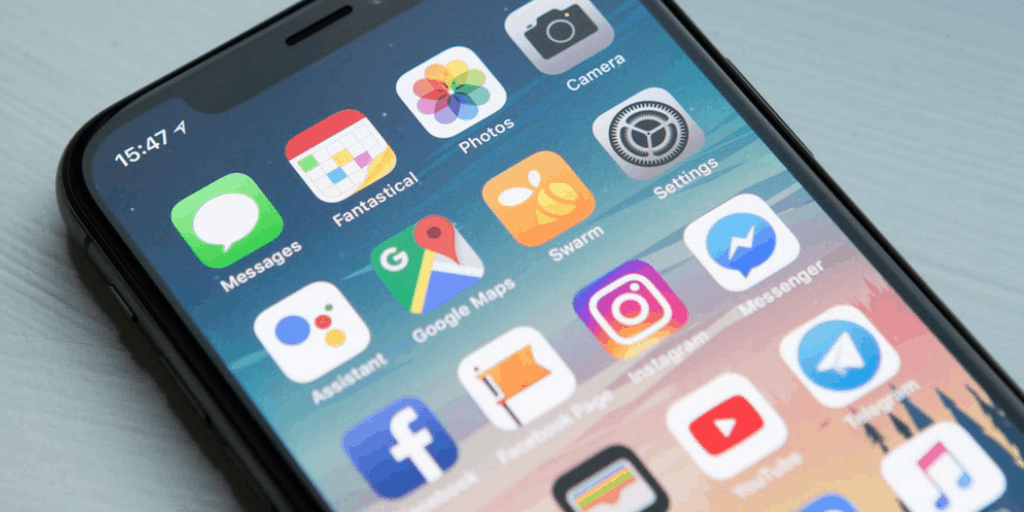Mobile App Developers
Mobile app developers have no easy task, considering apps are among the key factors that have led to the continued migration from desktop to mobile browsing.
Starting from sector studies that highlight the frequency of daily use of smartphones for various reasons, from information to entertainment, just to name a few, you can understand the importance of Mobile Apps. (Webateca internal link to “Importance of mobile apps” – Consideration / Web Agency).
It is useful to underline the basic function of mobile apps which is to allow immediate use of content: therefore mobile app developers will have to design a usable, simple and intuitive interface.
Therefore, when designing Mobile App developers, they will have to observe the principles of UI / UX design to improve the user experience and increase the downloads of your mobile app.
Let us briefly recall that the UI, or the user interface, is the part of the app (but also of each device) with which users interact: it must therefore provide the best possible interaction between user and app.
The UX, or the user experience, must offer users the best browsing experience possible, thus transforming casual users into loyal users.
UI and UX are therefore essential for Mobile App developers to obtain a simple and intuitive app with the aim of increasing the downloads of your mobile app.

What elements should mobile app developers consider?
There are many elements that mobile app developers should consider that can affect the success of the app itself.
Let’s try to identify some of them.
Market / competitors analysis.
As with any self-respecting product / service, you must start from a careful market research of your competitors and identify the features that really differentiate you from them (for example the unique logo or the algorithm) and on which to focus.
Research on some keywords.
Identify those with which your app may be listed on Google or in the app stores. Keywords are fundamental and your positioning in the App Stores depends on them. Furthermore, to improve search ranking, it is essential to constantly monitor keywords and their performance within the search engine: you need to know which keywords perform best, or which ones are relevant and used most often by your target.
Operating system
Mobile app developers face this perennial Hamlet doubt: which operating system, Android (from Google) or IOS (from Apple)?
If you opt for development on the Android platform, you will be able to reach a wider market segment; with iOS, on the other hand, users deemed more likely to purchase are reached.
Even if the developed app is the same, the implementation and publication criteria require profoundly different parameters.
User Experience
Another essential aspect to consider in order to develop a successful mobile app is to respect the User Experience parameters. Certainly visually appealing colors in line with those of the brand are important, but usability must be the basis for development and create an agile and intuitive navigation, as well as pleasant.
Orientation of the mobile app device
The orientation of your device can affect the interaction a user has with your app: therefore mobile app developers will have to adopt a responsive design that makes interaction easier for users.
Prototype
After you have carefully evaluated and planned the many aspects of the design, you can move on to prototyping.
This phase is very important to understand, before coding it, the result of what mobile app developers have created and to evaluate if there are some aspects to improve.
Are you ready for your successful mobile app?
READ MORE
-
 How important is the speed of a website?- 08/09/19
How important is the speed of a website?- 08/09/19 -
 Why is content on a website so important?- 12/09/19
Why is content on a website so important?- 12/09/19 -
 How important is it to have a mobile app optimized for all devices?- 08/10/19
How important is it to have a mobile app optimized for all devices?- 08/10/19 -
 How to communicate through the mobile app!- 29/10/19
How to communicate through the mobile app!- 29/10/19 -
 How to write content for the website- 04/11/19
How to write content for the website- 04/11/19 -
 Why is it useful to have a mobile app?- 04/11/19
Why is it useful to have a mobile app?- 04/11/19 -
 Do you want to know what the ideal structure of a website is?- 04/11/19
Do you want to know what the ideal structure of a website is?- 04/11/19 -
 Website and mobile app: the winning combination- 04/11/19
Website and mobile app: the winning combination- 04/11/19 -
 How to improve website performance- 28/11/19
How to improve website performance- 28/11/19 -
 All the ways to increase website visitors- 05/12/19
All the ways to increase website visitors- 05/12/19 -
 How important can an optimized mobile app be for your company?- 17/12/19
How important can an optimized mobile app be for your company?- 17/12/19 -
 Increase your mobile app downloads? Here’s how to do it- 19/12/19
Increase your mobile app downloads? Here’s how to do it- 19/12/19 -
 Not just a website: the mobile app can be one of the tools to increase the visibility of your company- 24/12/19
Not just a website: the mobile app can be one of the tools to increase the visibility of your company- 24/12/19 -
 Web Agency- 13/04/22
Web Agency- 13/04/22 -
 Software on the web- 12/04/22
Software on the web- 12/04/22 -
 Create mobile apps- 25/04/22
Create mobile apps- 25/04/22 -
 Importance of mobile apps- 26/04/22
Importance of mobile apps- 26/04/22 -
 What is the effective structure of a mobile app- 12/09/22
What is the effective structure of a mobile app- 12/09/22 -
 The basic rules for writing content- 26/04/22
The basic rules for writing content- 26/04/22 -
 Sponsor your site: how the content posted can help you- 26/04/22
Sponsor your site: how the content posted can help you- 26/04/22 -
 Mobile vs Desktop how content changes- 25/04/22
Mobile vs Desktop how content changes- 25/04/22 -
 How does site speed affect indexing?- 25/04/22
How does site speed affect indexing?- 25/04/22 -
 The 2 principles that make desktop browsing easier- 24/04/22
The 2 principles that make desktop browsing easier- 24/04/22 -
 6 fundamental things that make it easier for users to make purchases from mobile- 24/04/22
6 fundamental things that make it easier for users to make purchases from mobile- 24/04/22 -
 Smart Working, funding opportunities- 20/04/22
Smart Working, funding opportunities- 20/04/22 -
 iOS and Android how to create an app- 18/04/22
iOS and Android how to create an app- 18/04/22 -
 Promote your mobile app: here are the useful tools- 15/04/22
Promote your mobile app: here are the useful tools- 15/04/22 -
 Telemaco case history mobile app- 15/04/22
Telemaco case history mobile app- 15/04/22 -
 Content and SEO to be successful with your website- 14/04/22
Content and SEO to be successful with your website- 14/04/22 -
 How content marketing for service companies can be helpful- 14/04/22
How content marketing for service companies can be helpful- 14/04/22
Latest contributions
Services
-
 Mobile ApplicationsDeveloping quality mobile applications isn't easy at all. Find out how to take this opportunity.
Mobile ApplicationsDeveloping quality mobile applications isn't easy at all. Find out how to take this opportunity. -
 Websites developmentThe websites development service allows you to get the development of high quality websites and cloud applications. Find out more...
Websites developmentThe websites development service allows you to get the development of high quality websites and cloud applications. Find out more... -
 Marketing and CommunicationDiscover the professional Marketing and Communication services: Social Media Marketing, Google Ads and Search Engine Optimization (SEO).
Marketing and CommunicationDiscover the professional Marketing and Communication services: Social Media Marketing, Google Ads and Search Engine Optimization (SEO). -
 Content Marketing & Content CreationContent Marketing, with the creation of specific content, is fundamental in maximizing the quality of the User Experience and SEO.
Content Marketing & Content CreationContent Marketing, with the creation of specific content, is fundamental in maximizing the quality of the User Experience and SEO. -
 Technological PlatformsTechnological Platforms for Domain Management, DNS, Email, Hosting and Database Management
Technological PlatformsTechnological Platforms for Domain Management, DNS, Email, Hosting and Database Management -
 European Calls for Digital TransformationThe European calls for digital transformation represent important opportunities for companies in the digital sector.
European Calls for Digital TransformationThe European calls for digital transformation represent important opportunities for companies in the digital sector.









